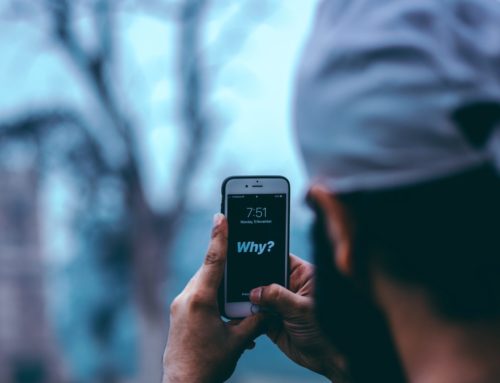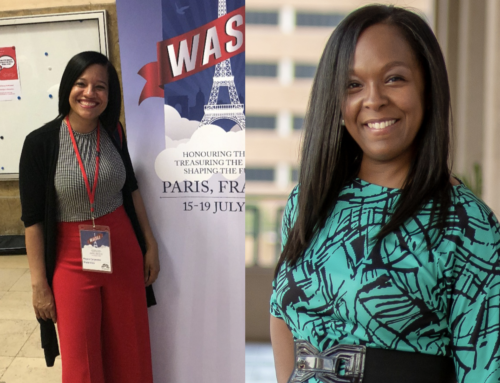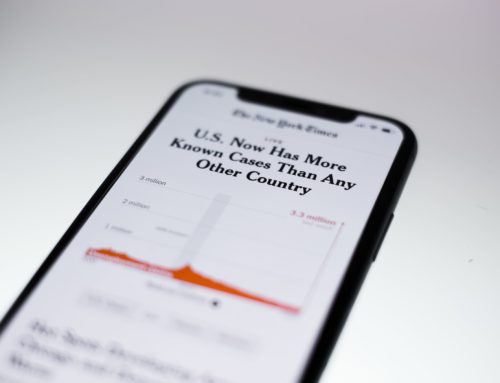Caring For Ourselves Within a Community
Breana Hall, CI and CT, CTACC
 Self-care is the ability to recognize needs and the willingness to meet those needs in a kind and loving way. In a perfect world, we could recognize a need, meet it, feel satisfied and fulfilled, and use this process to be effective in our lives.
Self-care is the ability to recognize needs and the willingness to meet those needs in a kind and loving way. In a perfect world, we could recognize a need, meet it, feel satisfied and fulfilled, and use this process to be effective in our lives.
Reality is a bit messier.
We live and work within the context of community. Our daily lives are tied intricately to others: colleagues, consumers, spouses and partners, children, parents, friends – the list is endless. Caring for ourselves in a community can be tricky. We care about these other people. We work and live closely with them, and their needs are a central focus of our work and lives.
This intersection between our own needs and the needs of others is sometimes a foggy and disorienting place. We may find ourselves asking, “How do I care for myself and prioritize my own needs, when others have competing needs?”As interpreters, many of us have hearts that are three sizes bigger than our bodies. We are sensitive to the struggles of others, and we want to do what we can to remedy them. This drive can sometimes be at odds with our own ability to take care of ourselves.
According to Dr. Ryan Howe, a clinical psychologist in Pasadena, a boundary is defined quite simply as “the line where I end and someone else begins.” Becoming aware of this line and knowing how to honor it in our work and in our lives will be an important part of practicing self-care while being active in our communities. Here are two tips to bring more clarity to the fuzzy space between ourselves and others.
Tip #1: Stay in Your Yard
A simple litmus test to determine where you end and someone else begins is the question: “What is in my control?” What you do, what you say, and what you believe are the main facets of your domain.
Alternately, the space beyond where you end includes those things which are in someone else’s control. What they do, say and believe. You may desperately want control over what another person says, does, or believes, and you may have influence over it, but ultimately they have the singular power to decide.
There is one more space to include here, and that is the domain that is out of your control and out of others’ control–The Rest. Some call this God, Universe, Reality, Nature. This includes things like weather, traffic, past, and future.
Now that we have these definitions, I invite you to imagine yourself within the fenced confines of a yard that is your very own. This outdoor space can look however you choose: it may have a beautifully manicured grape arbor, rows of flowers, pea gravel and statues, or a wide expanse of lawn. This space is yours, and only you decide how it is maintained.
You look over, across the fence into your neighbor’s lawn, and you see weeds and rats. In your estimation these are nuisances, and have no place in your neighborhood. They may make their way into your yard, after all, and affect the landscape! You make your way across your yard, over the fence, and into your neighbor’s yard, intent on giving them a piece of your mind.
As soon as you step out of your own yard, you are trying to control something that is not yours to control…and who is caring for your yard now? No one. You have abandoned yourself. You are neglecting what is yours to care for. You are essentially handing your happiness to your neighbor and asking them to babysit. When we leave our own yard, that which is ours to care for, we often end up feeling disrespected and unimportant.
There are moments as an interpreter when you may find yourself wishing that your team would display (or not display) a certain behavior, or thinking that the consumer you are working with must think you are a lousy interpreter, or when you are fed up with the agency that is begging you to take this last-minute assignment. In these moments, try asking yourself any variation of these questions:
“What is my business?”
“What is mine to take care of here?”
“What is within my yard?”
In each situation, we have a responsibility to ourselves and to those around us to do what is ours to do.
When our actions stem from this place of clarity, we are better able to channel an authentic spirit of service and alignment in our work.
Tip #2: Notice Your “Heck, Yes!”
Boasting 100 billion neurons (Herculano-Houzel, 2009), the Western world places great importance on the wonders of the logical brain. “The human brain has often been viewed as outstanding among mammalian brains.” As interpreters, our work depends on our mind’s ability to perceive and process information. Many of us have incredible mental capacity, and even take great joy in exercising our mental muscles with games like sudoku, trivia, and crosswords.
But housed in the human body are two more notable collections of neurons, known as the second and third “brains”. These often-underutilized information centers include 40,000 neurons located in the heart (Rozman, 2017) and 500 million located in the gut (Young, 2012), and can be powerful sources of perception if we learn to tune in to them.
Often the logical brain is busy weighing options and decisions, while the gut and heart know immediately whether or not a course of action is the right one. Learning to employ and trust this wisdom can be a great asset when navigating boundaries and relationships in community. When you tune in, you can instinctively feel the “Heck, Yes!” or “Heck, No!” response in your gut.
To begin noticing your “Heck, Yes!” when faced with a decision:
- Stand with your feet hip-width apart, plant them firmly, and feel the ground supporting you. Alternately, you can sit with a similar stance.
- Close your eyes and take three deep breaths.
- Imagine yourself in one of the possible decision outcomes. How does it look and feel? Who is there? Are you happy? Spend as long as you can getting the specific details of the scenario and how they make you feel in your body.
- Ask yourself, “Do I want (name this possible outcome)?”
- Feel your body either lean forward, toward this decision, or notice it lean back, away from this decision.
- Trust your body’s answer.
Caring for ourselves while caring about our community is not a simple task, but it is a worthwhile one. As we practice seeing clearly the boundary between ourselves and others and tuning into our body’s built-in navigation system, we enhance our interactions by showing up with more available bandwidth to connect with, serve, and enjoy each other.
For support and resources you can find me at breana@brighterfocus.com.
 Breana Hall, CI and CT, CTACC holds her CI/CT from RID, BS in Interpretation from Western Oregon University, and is a Certified Life Coach. She has led thousands of interpreters in preventing burnout and finding passion again in their lives through developing habits of self-care. Brea is a native of Portland, Oregon, where she can usually be found writing, reading, or playing near water with her partner, four kids, and two dogs.
Breana Hall, CI and CT, CTACC holds her CI/CT from RID, BS in Interpretation from Western Oregon University, and is a Certified Life Coach. She has led thousands of interpreters in preventing burnout and finding passion again in their lives through developing habits of self-care. Brea is a native of Portland, Oregon, where she can usually be found writing, reading, or playing near water with her partner, four kids, and two dogs.






Leave A Comment
You must be logged in to post a comment.